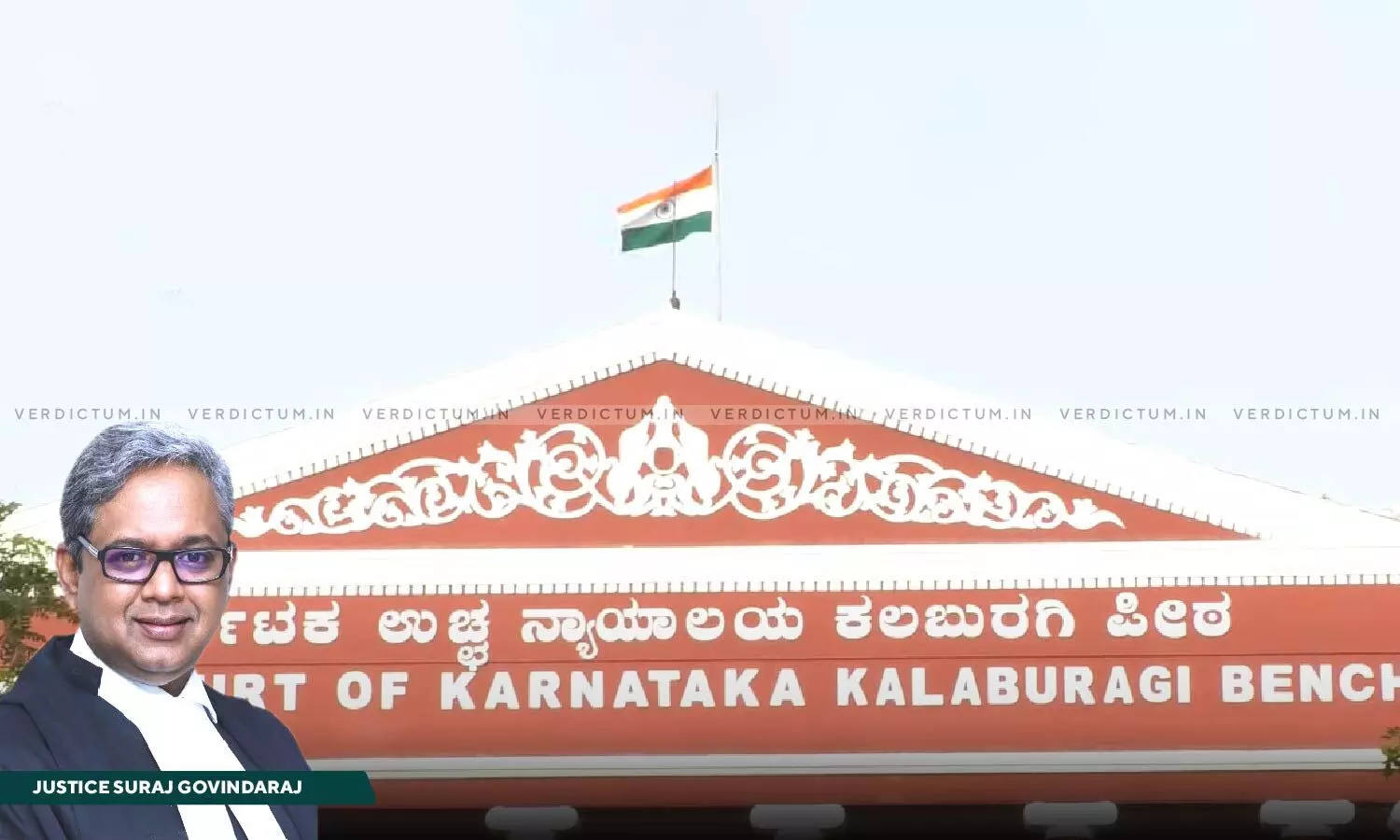
Except On Sufficient Grounds, Commercial Court Cannot Permit Party To Lead Fresh Evidence After Matter Is Posted For Arguments- Karnataka HC
 |
|A Karnataka High Court Bench of Justice Suraj Govindaraj has observed that except on sufficient grounds, a Commercial Court cannot permit a party to lead fresh evidence after the matter is posted for arguments and when the witness was not named in the list of witnesses and affidavit was not filed.
In that context, it was said that, "a Commercial Court cannot in light of Order 18 Rule 4(1A) permit a party to lead fresh evidence after the matter is posted for arguments when the witness has not been named in the list of witnesses and the affidavit has not been filed as per the Calender of dates fixed under Order 15A of the Code of Civil Procedure as amended by the Commercial Court Act, 2015, except if sufficient grounds is made out for the same. Unless exceptional grounds are made out for allowing further evidence or examination of further witness in terms of Subrule (1B) of Rule (4) of Order 18 of CPC, the Commercial court cannot permit a person who is not named in the list of witnesses and whose affidavit has not been filed in the time stipulated under Order 15A of CPC cannot be permitted to lead his evidence by filing his affidavit."
Counsel Krupa Sagar Patil appeared for the petitioners, while HCGP Maya TR and Counsel Sachin M Mahajan appeared for the respondents.
In this case, the plaintiffs had presented their evidence through a witness, Sri P. Chandramouli, who claimed to be the Chief General Manager of APR Constructions Limited and the plaintiff's General Power of Attorney holder. He was examined as PW-1 and subjected to cross-examination. Following this, the defendants presented their evidence, and their witnesses were also cross-examined.
As the case reached the stage for reply arguments, the plaintiffs filed an application under Section 151 of the Code of Civil Procedure (CPC). This application sought permission to introduce additional evidence on behalf of the plaintiff. The defendants objected to this application.
However, the Court granted the plaintiff's application through an order dated 13.06.2023, which is the subject of challenge before the High Court.
The High Court framed the following issues and answered them accordingly.
1) Whether a Commercial Court can in light of Order 18 Rule 4(1A) permit a party to lead fresh evidence after the matter is posted for arguments when the witness have not been named in the list of witnesses and the affidavit has not been filed as per the Calender of dates fixed under Order 15A of the Code of Civil Procedure as amended by the Commercial Court Act, 2015?
The Court held that in terms of Order 18(4)(1-A), read in conjunction with Order 15A relating to Case Management Hearing, the date on which the affidavit of evidence is required to be filed would be for the evidence of all the witnesses that a party proposes to examine in a particular matter simultaneously. It was further noted that Order 18(4)(1-A) imposes a restriction or a prohibition that a party shall not lead additional evidence by way of affidavit of any witness including a witness who has already filed an affidavit unless sufficient cause is made out in an application filed for such purpose.
It was also added that the prohibition is not absolute, and an exception to the prohibition can be made out only if sufficient cause is made out in the application filed for that purpose.
2) Whether the impugned order passed by the Trial Court suffers from any legal infirmity requiring interference at the hands of this Court?
The Court held that the impugned order suffered from several legal infirmities requiring interference at the hands of this Court and as such was required to be set aside.
3) Whether in view of Section 8 of the Commercial Courts Act 2015, the present writ petition is maintainable?
In that context, the Court observed that, "Being of the opinion that there is manifest error resulting in grave injustice caused to the petitioner-defendant, I am of the considered opinion that this Court would have to exercise its supervisory power under Article 227 of the Constitution of India despite Section 8 of the CCA, which infact is not a complete bar."
Subsequently, the petition was allowed. The impugned order was quashed and the Commercial Court was directed to dispose of the matter as expeditiously as possible.
Cause Title: Krishna Bhagya Jala Nigam Ltd. & Ors. vs A Prabhakara Reddy & Anr.
Click here to read/download the Judgment